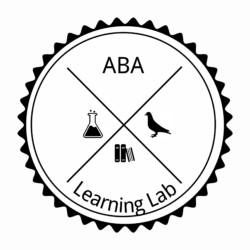James Macon, M.Ed., BCBA
Behavior analysts are scientist-practitioners, meaning that they are trained to be knowledgeable in both research and clinical practice. Every year, continuing education requirements ensure that some of level of new scientific research is consumed, and taken back to a clinical practice. As practitioners, the scientific method is used to identify variables that are relevant to treatment, and subsequent decisions are made based on what the ongoing data indicates.
Living up to the scientist label assumes we take certain positions that are not always popular. For example, many BCBAs bump heads with other professionals who are using non-evidence based interventions. Part of this is that time and resources (especially for young children with autism) are crucially important and always fleeting.
To take away time from ABA, the most empirical and effective treatment for autism, for something that has not been found to be effective, seems irresponsible and not in the best interest of the client. That isn’t to say that these therapies are “bad,” but rather there is no evidence to support that they help treat the core symptoms of autism or improve adaptive functioning. Some examples include:
- Therapeutic Horseback Riding
- Dolphin-Assisted Therapy
- Prism Glasses
- Sensory integration
Each year that passes provides more and more “treatments” that simply put, appear to prey on families desperate to do the right thing. These are provided by non-healthcare professionals using non-evidenced based practices. These treatments are not based in science and are often have evidence suggesting they are harmful. Some examples of these include:
- Holding Therapy
- Chelation
- Lupron Therapy
- Hyperbaric Oxygen Therapy
- Gluten free-casein free diet
- Anti-fungal agent therapy
- Secretin injections
- Raw camel milk
- Nicotine patch therapy
- Bleach therapy (aka Miracle Mineral Solution)
- Marijuana therapy
- Transcranial Magnetic Stimulation
Some families are actually strong proponents of some of the therapies listed above. It is not my place to tell them what to do, I can simply advise on what the research community has found. While i may not see any evidence to support dolphin therapy or a sensory diet, if the client responds well to them and enjoys it, i am in general supportive. If they are considering a treatment that may cause harm, i may have to intervene as a mandated reporter, but this is only if they are considering something dangerous.
It’s not that we’re nay-sayers or pessimists (quite the opposite), it’s that our job is to engineer behavior over some period of time, attempting to predict and control variables for success. Some of the underlying attitudes of science (and hence, why we may seem very opinionated on certain topics) are listed below in an effort to help explain some of our attitudes.
Determinism
“Scientists presume that the universe, or at least that part of it they intend to probe with the methods of science, is a lawful and orderly place in which all phenomena occur as the result of other events” (p 5).
Empiricism
“…the practice of objective observation. Every effort to understand, predict, and improve behavior hinges on the behavior analyst’s ability to completely define, systematically observe, and accurately record occurrences and non-occurrences of the behavior of interest” (p 5).
Experimentation
“is the basic strategy of most sciences. When events are observed to covary or occur in close temporal sequence, a functional relation may exist, but other factors may be responsible for the observed values of the dependent variable” (p 5). “An experiment is a carefully conducted comparison of some measure of the phenomenon of interest (the dependent variable) under two or more different conditions in which only one factor at a time (the independent variable) differs from one condition to another” (p 6).
Replication
“the repeating of experiments (as well as repeating independent variable conditions within experiments)” (p 6).
Parsimony: “requires that all simple, logical explanations for the phenomena under investigation be ruled out experimentally before more complex or abstract explanations are considered” (p 6).
Philosophic Doubt
“requires the scientist to continually question the truthfulness of what is regarded as fact. Scientific knowledge must always be viewed as tentative, and the scientist must constantly be willing to replace with new discoveries even those facts of which he is most certain” (p 6).
Cooper, J.O., Heward, W.L., Heron, T.E. (2007). Applied Behavior Analysis. Upper Saddle River, NJ: Pearson Prentice Hall

